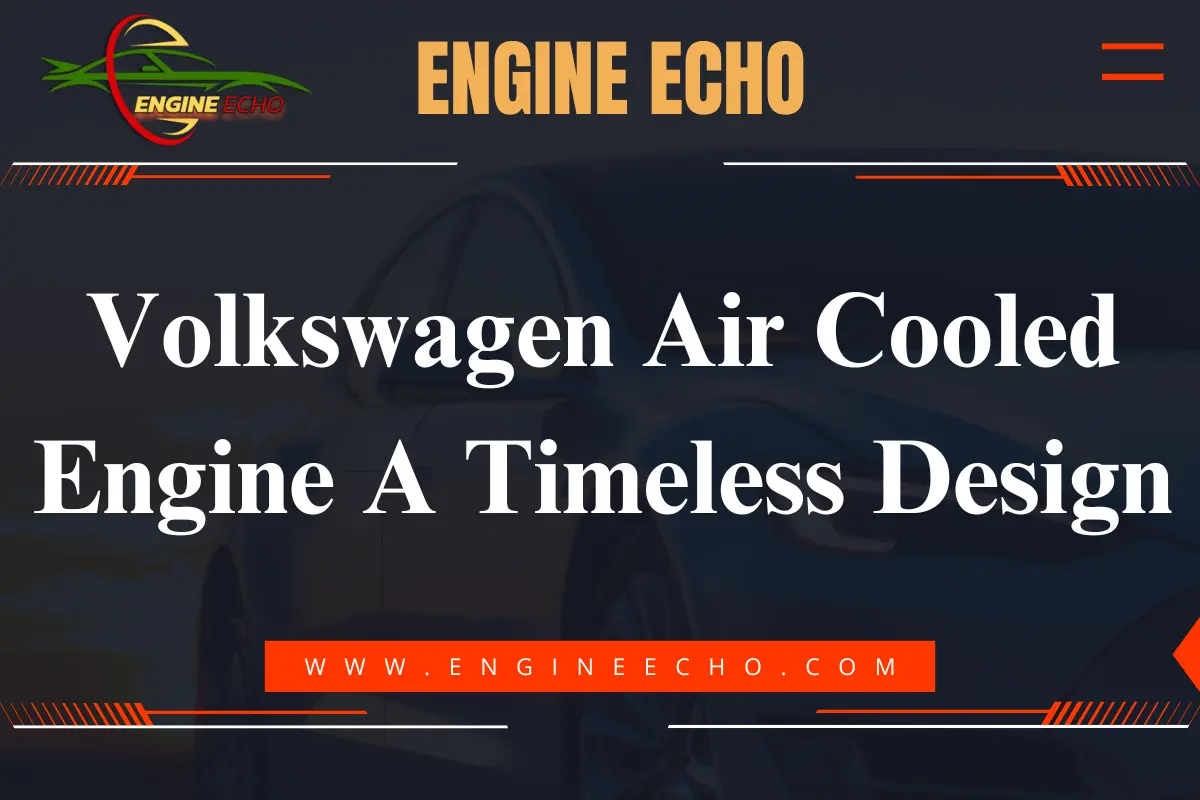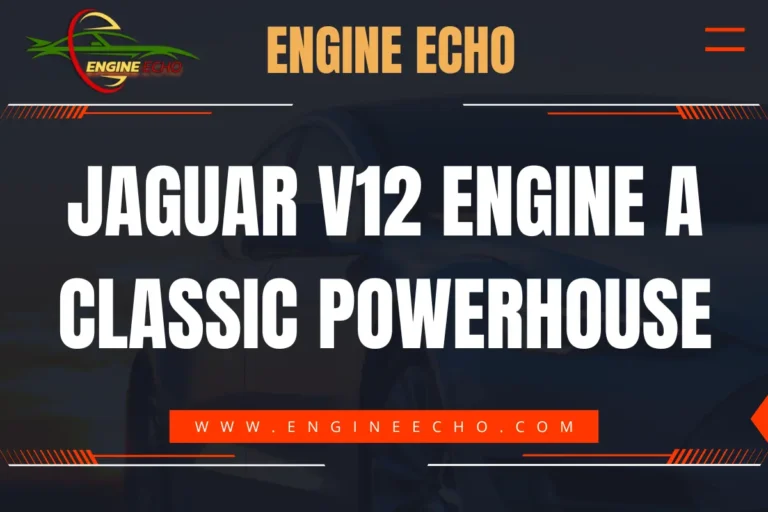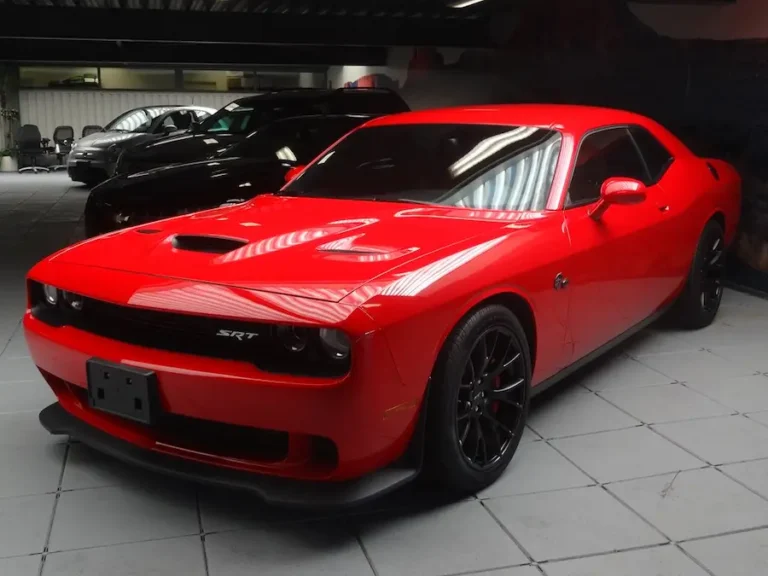Volkswagen Air-Cooled Engine: A Timeless Design

Key Takeaways:
- The Volkswagen air-cooled engine is renowned for its simplicity, durability, and minimal maintenance needs.
- This engine design powered iconic vehicles like the Beetle and the Type 2 Bus, shaping automotive history.
- Unlike liquid-cooled engines, air-cooled systems are less prone to freezing or leaks, making them reliable in various climates.
- VW air-cooled engines have a devoted fan base, with enthusiasts restoring and modifying them for modern performance.
- Despite being phased out, the legacy of the VW air-cooled engine endures, continuing to inspire classic car enthusiasts.
Introduction
The Volkswagen air-cooled engine has always had a special place in my heart. From the unmistakable sound to its simple yet brilliant design, it’s one of those engines that sticks with you. Whether you’re restoring an old Beetle or just admiring the ingenuity behind it, this engine has a way of captivating enthusiasts. I’ve worked with various engines over the years, but nothing compares to the satisfaction I get from a well-tuned air-cooled VW engine. This article dives into what makes this engine so timeless, why it continues to inspire, and why I still believe it’s one of the best engines ever made.
1. Introduction to the Volkswagen Air-Cooled Engine
The Volkswagen air-cooled engine came about because VW wanted something durable, easy to maintain, and cost-effective. Ferdinand Porsche’s vision for the VW Beetle made this engine central to creating a “people’s car.” What amazes me about this design is how they simplified cooling by using air, a method that’s reliable and efficient. It’s the kind of smart thinking that makes you appreciate what engineering can do when the goal is simplicity.
2. The Engineering Behind the Air-Cooled Engine
Instead of relying on water or coolant, which can leak, freeze, or just complicate things, VW’s engineers made air do all the cooling. It’s a no-nonsense approach that’s worked for decades, especially in climates where freezing would mess up a liquid-cooled engine. I’ve always found this system to be incredibly effective despite its simplicity.
Differences from Liquid-Cooled Engines:
- No radiators or water pumps: Fewer parts mean fewer things that can go wrong. That’s what I love about this engine—it’s built to be simple and reliable.
- No risk of freezing: If you’ve ever dealt with a liquid-cooled engine in freezing temperatures, you’ll appreciate how much easier life is without worrying about frozen coolant.
- Lighter weight: Without the bulky cooling systems, the engine is more compact and easier to maintain.
Key Components:
- Finned Cylinders: These help get rid of excess heat quickly. When you see those fins, you know this engine was designed with practicality in mind.
- Fan and Shroud System: Keeping this in good shape is key. In my experience, it’s the difference between a smooth-running engine and one that overheats.
- Oil Cooling: Some models also use oil to help with cooling, and I’ve seen people add oil coolers to boost performance, especially in hot climates.
3. Historical Importance of the Air-Cooled Engine
This engine isn’t just functional—it’s a piece of history. It powered millions of Beetles, and those cars became a symbol of post-war resilience. For me, it’s fascinating to think about how this little engine helped mobilize a generation, providing affordable and reliable transport to people who needed it most.
4. Iconic Vehicles Powered by Volkswagen’s Air-Cooled Engine
Volkswagen Beetle: The “People’s Car”
Every time I get behind the wheel of a Beetle, I’m reminded of how perfectly this engine complements the car’s design. It’s compact, reliable, and built to last. The first time I drove one, I was amazed by how connected I felt to the road. It’s not a powerhouse by any means, but there’s something deeply satisfying about the hum of the engine and the way it performs. It’s a car that just keeps going.
Volkswagen Type 2 (Bus): Revolutionizing Transport
Then there’s the Type 2 Bus—another vehicle that wouldn’t be what it is without the air-cooled engine. From family road trips to custom camper vans, this engine has been the heart of a vehicle that’s about freedom and adventure. For me, it’s not just an engine—it’s a lifestyle. The fact that it became a symbol of the 1960s counterculture movement only adds to its iconic status.
5. Benefits of Air-Cooled Engines
Whenever I pop the hood on an air-cooled engine, I’m reminded why I love them so much: simplicity. Without the need for radiators or coolant, there’s less to break, less to maintain, and fewer parts overall. And that’s the beauty of it—fewer things to worry about means more time enjoying the ride.
- Fewer Components: Without radiators or water pumps, you’ve got fewer parts to deal with. It’s straightforward and reliable, which is something I’ve always appreciated.
- Durability: These engines are tough. Whether it’s the desert heat or freezing cold, they keep running.
- Lower Maintenance: Since there’s no coolant system to maintain, you can focus on other things, like making sure your oil’s fresh and your fan’s working properly.
6. Common Issues and How to Address Them
Like any engine, the VW air-cooled isn’t without its quirks. Over the years, I’ve dealt with overheating, oil leaks, and ignition issues, but with the right tools and some patience, these problems are pretty easy to fix.
Overheating in High-Temperature Environments:
- Solution: Keeping the fan and shroud system clean and working properly is crucial. If you’re in a hotter area, adding an oil cooler is a simple way to avoid overheating.
Oil Leaks:
- Solution: Over time, seals and gaskets wear out, but I’ve found that upgrading to modern gaskets can make a big difference. A few tweaks, and it’s like you’ve got a whole new engine.
Troubleshooting the Ignition System:
- Solution: Check your spark plugs and wires. In my experience, if your engine’s acting up, it’s usually something as simple as a bad spark plug.
7. Modifying and Tuning the Volkswagen Air-Cooled Engine
The best part of owning a VW air-cooled engine, in my opinion, is how much you can modify it. Whether you’re tuning it for more power or adding custom parts, there’s no shortage of ways to make the engine your own.
Popular Modifications:
- Carburetor Upgrades: I’ve upgraded to dual carbs on a few engines, and the difference in throttle response is immediate. It’s one of the first upgrades I’d recommend.
- Exhaust Systems: A free-flow exhaust system doesn’t just improve performance—it also gives the engine a great sound.
- Performance Ignition Systems: Switching to an electronic ignition system is one of the best things you can do. It’s more reliable and makes the engine feel smoother overall.
8. The Volkswagen Air-Cooled Engine in Racing
Believe it or not, these engines aren’t just for casual drives. I’ve seen air-cooled VW engines hold their own in off-road racing, dune buggies, and even drag racing. They may not be the fastest, but they’ve got heart—and with the right modifications, they’re pretty competitive.
Success Stories:
One of my favorite memories was watching air-cooled dune buggies tear across the desert at the Baja 1000. These engines can take a beating and keep going, proving that you don’t need massive horsepower to make an impact.
9. Environmental Considerations
As much as I love the air-cooled engine, I can’t ignore that it’s not the cleanest engine by today’s standards. But that doesn’t mean we can’t find ways to make them more environmentally friendly.
Efforts to Reduce Emissions:
- Catalytic Converters: If you want to reduce emissions, adding a catalytic converter is a great way to start. It’s an easy upgrade that makes a big difference.
- Fuel Injection: I’ve seen people swap out their carburetors for modern fuel injection systems, and it’s amazing how much cleaner and more efficient the engine becomes.
10. Why Enthusiasts Still Love the VW Air-Cooled Engine
There’s something about this engine that pulls you in. Maybe it’s the nostalgia or the simplicity, but I know I’m not alone in feeling this way. Every time I work on an air-cooled VW, I’m reminded of why I fell in love with it in the first place. It’s not just an engine—it’s a part of history.
11. Modern Alternatives and Electric Conversions
While I’ll always have a soft spot for the classic air-cooled engine, I’ve been following the rise of electric conversions with interest. It’s a great way to keep these iconic vehicles on the road while adapting to modern standards.
Case Studies:
I’ve seen some amazing electric VW conversions that keep the spirit of the original while making them more sustainable. It’s the best of both worlds—classic style with modern efficiency.
12. The Legacy of Volkswagen’s Air-Cooled Engine
Even though VW stopped making air-cooled engines years ago, their legacy lives on. I’ve spent a lot of time working with these engines, and I know that I’m not alone in my appreciation for them. Whether you’re restoring a Beetle or customizing a Bus, the air-cooled engine remains a symbol of innovation, simplicity, and reliability.
Conclusion
The Volkswagen air-cooled engine might be from a different era, but that’s exactly why it’s worth keeping around. Its simplicity, durability, and undeniable charm make it a standout, even today. If you ever get the chance to own, restore, or drive a VW with an air-cooled engine, I say go for it. You won’t regret it—it’s a piece of automotive history that’s still a blast to drive.
Frequently Asked Questions (FAQs)
- Why did Volkswagen stop producing air-cooled engines?
Air-cooled engines were phased out primarily due to emissions regulations and advancements in liquid-cooled technology, which offer better efficiency and temperature control. - What are the main advantages of air-cooled engines over liquid-cooled ones?
Air-cooled engines are simpler, lighter, and require fewer parts to function. They are less prone to issues like coolant leaks and freezing. - Are air-cooled Volkswagen vehicles still reliable today?
Absolutely. With proper maintenance, many air-cooled VW vehicles remain reliable and are still in use today. - Can I modify my VW air-cooled engine for better performance?
Yes. Popular modifications include upgrading the carburetor, exhaust, and ignition systems to improve performance and reliability. - How can I maintain my air-cooled engine to avoid overheating?
Regular maintenance of the fan, shroud system, and oil levels is essential. Adding aftermarket oil coolers can help in warmer climates.
Thanks for checking out this article on EngineEcho.com! Hope you found this article: "Volkswagen Air-Cooled Engine: A Timeless Design" helpful! If you liked it and want to dive into more car engine topics, head over to our homepage. There's always something new to discover in the world of engines. Enjoy your reading journey!
Check out our previous article: Aircooled VW Engine: A Classic Powerhouse






